

Discover more from Weapons and Strategy
Russia reports that a Russian T-72B3 tank has destroyed an Abrams tank "on the first shot." The clash took place near Avdiivka.
The type of round fired by the Russian tank was not disclosed in the Russian report. Most probably it was an APFSDS-T projectile. APFSDS-T translates as an Armor Piercing Fin Stabilized Discarding Sabot plus Tracer. This type of anti tank projectile features a long penetrating road that is superheated when the weapon strikes an object. A possible candidate is the 3BM48 "Svinets" which features a high elongation uranium monoblock penetrator. There is also an updated model (3BM59 "Svinets-1") that has been designed to work with the tank's autoloader. Russian tank guns are 125mm smooth bore. The Abrams has a 120mm smooth bore gun.
We don’t know if the Abrams got off a shot at the Russian tank before it was hit.
Below is a US M829 120mm APFSDS round designed for the Abrams M1AI and M1A2 120mm gun.
So far there has been no comment from the US Defense Department. The Abrams tank likely had early-edition reactive armor, so the Russian projectile went through the reactive armor and the tank’s layered "Chobham" armor, if the video and other reports are trustworthy.
While the Abrams tanks supplied do not have the latest armor system, the tanks supplied to Ukraine were designed expressly to stop APFSDS threats.
The US Army recently decided to scrap upgrading its Abrams tanks and is now seeking to build an entirely new tank. What this means is that the US Army is no longer confident in the survivability of the Abrams on the modern battlefield. There is no timetable for an Abrams replacement, but a complete redesign and full testing could take longer than a decade.
The same concern is evidenced in the loss of many Leopard 2 tanks in Ukraine and the destruction of at least one British-made Challenger 2 tanks.
The Russians also must be deeply concerned about tank survivability. Russia has lost a large number of tanks in Ukraine, including some of the latest model T-90s. The newest Russian tank, the T-14 Armata has not been used in Ukraine. The Ukrainians also lost a number of Russian-manufactured tanks in their own inventory.
Modern battle tanks face an array of weapons that did not exist before. Beyond sophisticated anti tank missiles with tandem warheads, which have been around for a number of years, tanks face highly improved anti tank ammunition, kamikaze drones like the Russian Lancet, and air-launched mines that force tanks to operate in single lines instead of being massed to support combined arms attacks. Tank power trains and tacks can still be disabled by conventional weapons, making immobilized tanks sitting ducks for the enemy to destroy.
At least one of the Abrams tanks destroyed recently in Ukraine was first immobilized by an anti-tank grenade (probably an RPG-7) aimed at the running track of the tank.
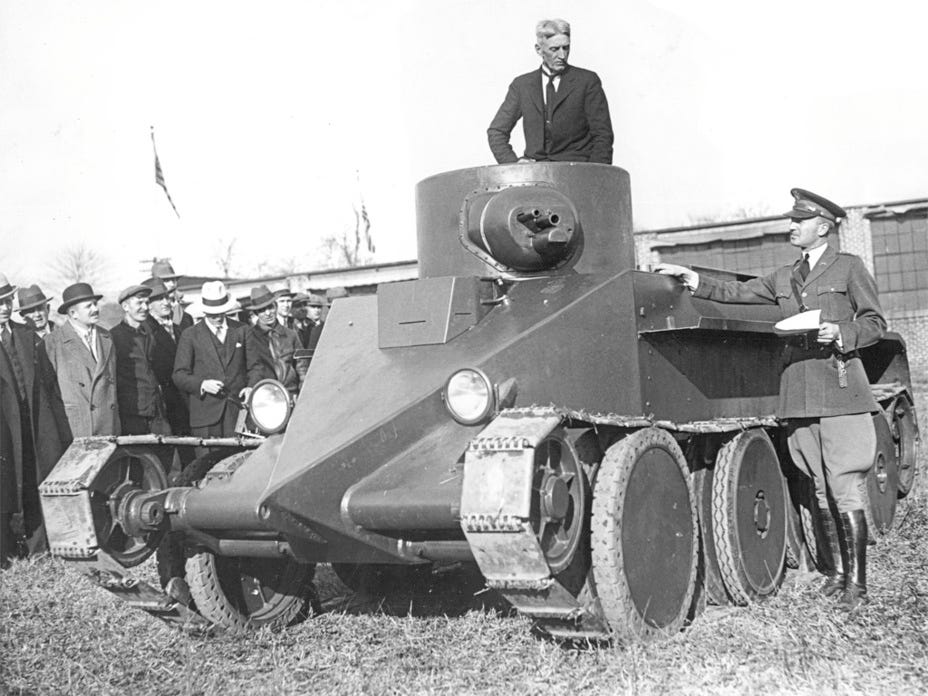
When Russia first built its early tanks before World War II it relied on a design by J. Walter Christie. Christie, an American automotive genius, was a great innovator in tank design, the first to propose a coil spring suspension that was used on the Soviet BT and T-34 tanks. Christie also proposed a solution if the tank track was destroyed or some of the running wheels damaged. The remaining idler wheels would be road-worthy, keeping the tank operational or propelling the tank on its way to the battlefield. This part of the design was rejected by the Soviets mostly because Russian roads were too poor for them. The Christie solution may yet reappear on the next generation of tanks in future.
Both the US and Germany are already working on a next generation of battle tanks.

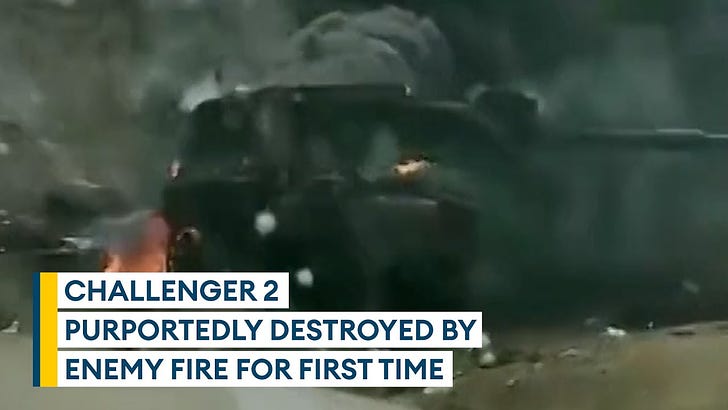


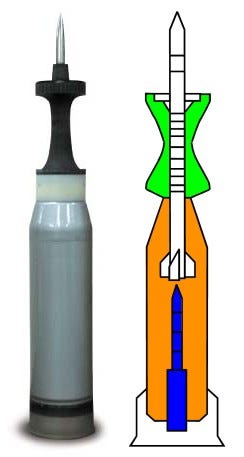





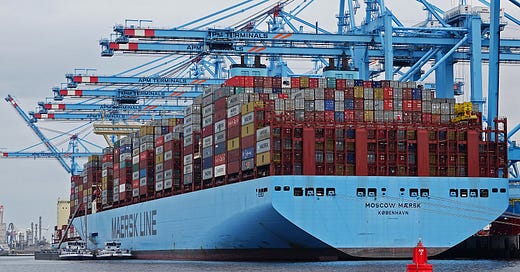

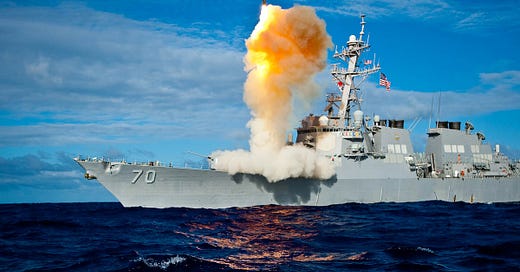

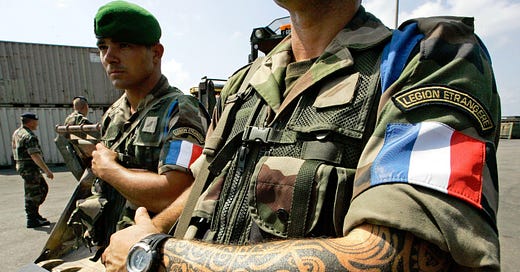

It’s seems to me that a whole new concept of warfare is needed. This looks like knights on horseback. Of course we could always just try peace.
I remember one of the chinless British generals with four names bragging that the Russians would drop their guns and flee at the sight of a Challenger tank.
It seems that the UK never got the memo that they are now a third rate military power. Their ships can’t put to sea without needing major repairs and their army can’t deploy an entire infantry division without a major recruitment effort to fill the ranks first.